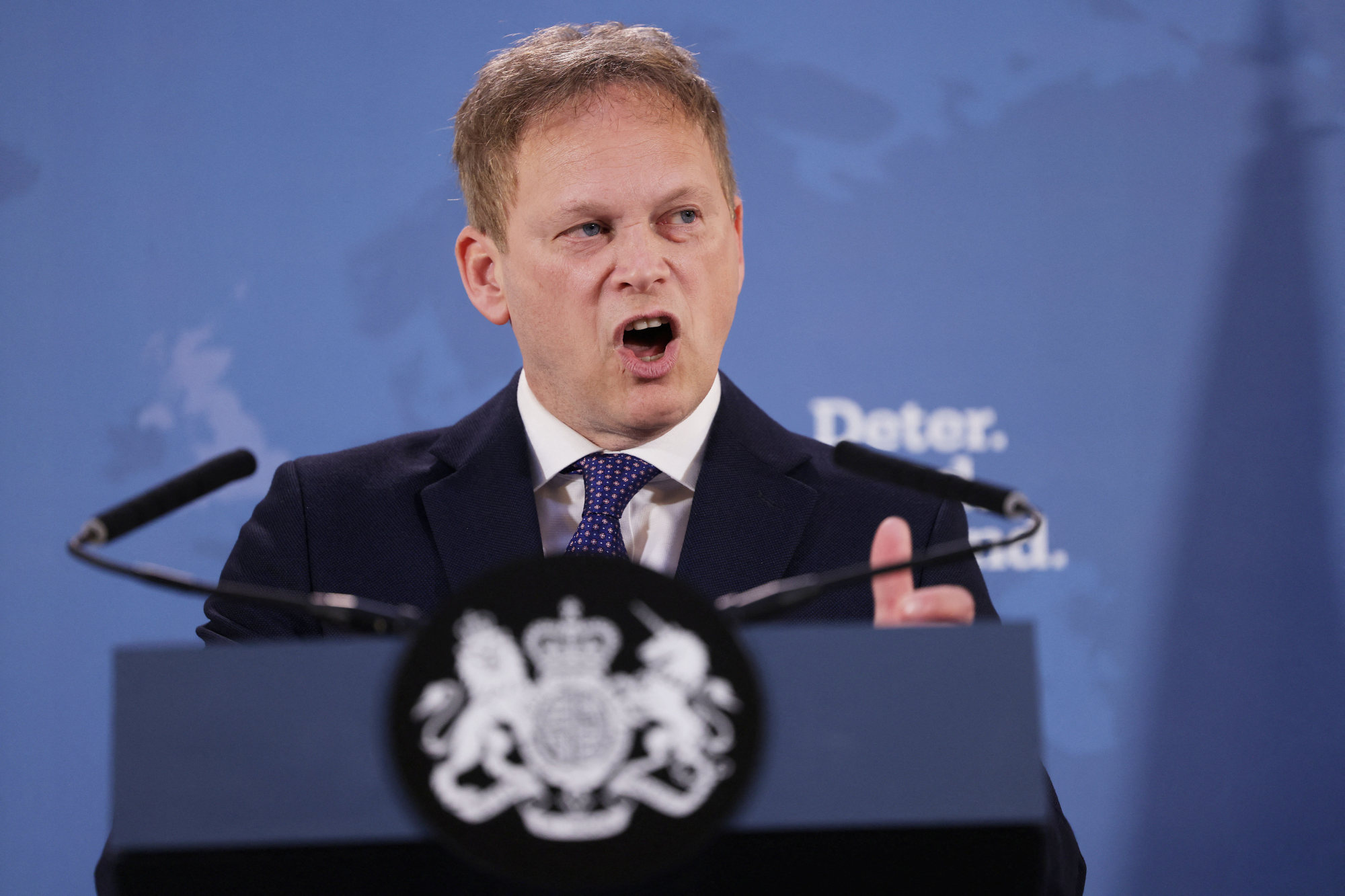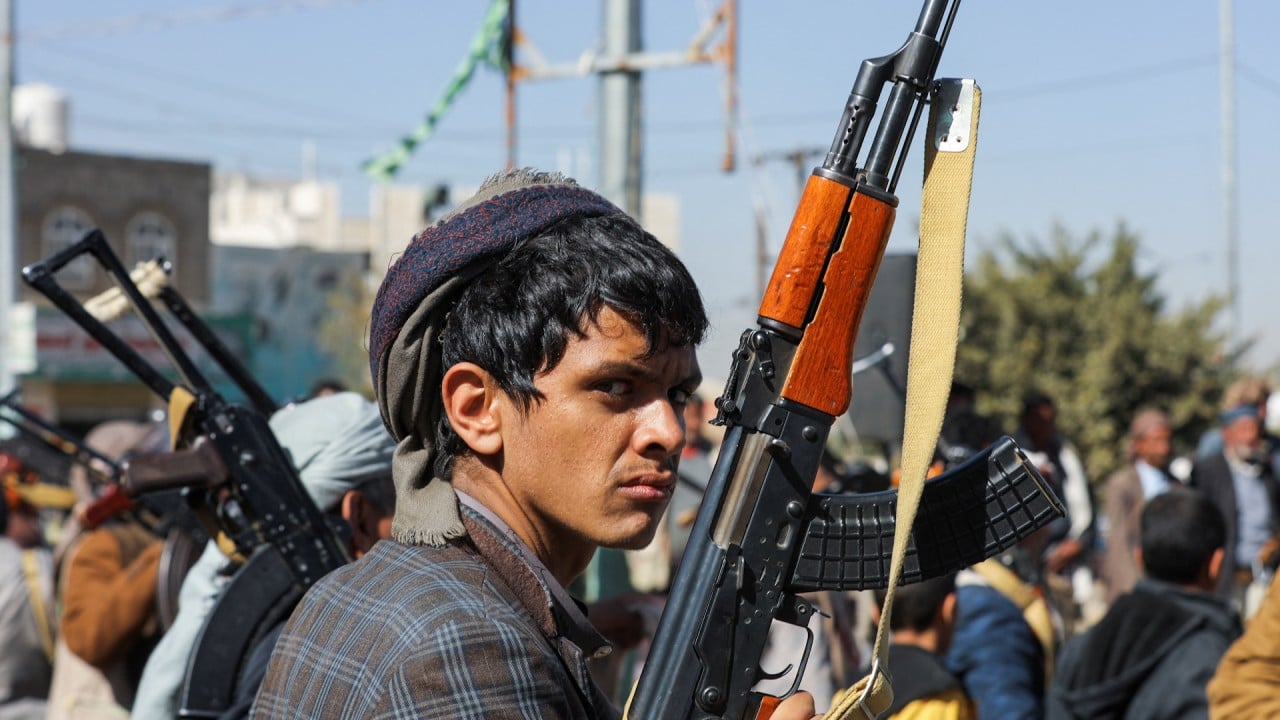On Monday, a missile struck a US-owned cargo ship just off the coast of Yemen in the Gulf of Aden. The US blamed the Houthis for the attack, which came less than a day after the Houthis fired an anti-ship cruise missile toward an American destroyer in the Red Sea.
Sunak said the British participation “was intended as limited single action and we hope the Houthis will now step back and end their destabilising attacks”.
“We will not hesitate to protect our security, our people and our interests where required,” Sunak added.
US-UK attacks on Houthis raise war stakes in Middle East amid Gaza conflict
US-UK attacks on Houthis raise war stakes in Middle East amid Gaza conflict
“If the government is proposing further action, then it should say so and set out the case, and we’re going to have to consider that on a case-by-case basis on the merits,” he said.
The smaller opposition Liberal Democrats accused the government of “riding roughshod over a democratic convention” that Parliament should get a vote on military action.

Sunak said it had been “necessary to strike at speed … to protect the security of these operations”, so there was no chance to consult Parliament.
Sunak’s government is facing mounting demands on Britain’s ever-shrinking military in an increasingly volatile world. Hours after the strikes on the Houthis, Sunak was in Kyiv, where he announced a further £2.5 billion (US$3.2 billion) in military aid to Ukraine and signed a long-term security agreement with President Volodymyr Zelensky.
Defence Secretary Grant Shapps, in a speech on UK defence policy on Monday, said the combination of threats from autocratic states and non-state militant groups risked “tearing apart the rules-based international order established to keep the peace after the Second World War”.
He repeated the government’s “aspiration” to increase military spending to 2.5 per cent of gross domestic product from its current level of just above 2 per cent, although he did not commit to increasing the number of British troops.
Chinese FM Wang Yi opens Africa tour with jab at US-led strikes on Houthi
Chinese FM Wang Yi opens Africa tour with jab at US-led strikes on Houthi
Sunak – whose Conservative Party trails Labour in opinion polls ahead of an election due this year – is also struggling to revive his stalled plan to send asylum seekers on a one-way trip to Rwanda.
The controversial plan is central to Sunak’s pledge to “stop the boats” bringing unauthorised migrants to the UK across the English Channel from France. More than 29,000 people made the perilous journey in 2023. Five people died over the weekend while trying to launch a boat from northern France in the dark and winter cold.
The plan has been criticised as inhumane and unworkable by human rights groups and challenged in British courts. In November the UK Supreme Court ruled the policy is illegal, because Rwanda is not a safe country for refugees.
In response to the court ruling, Britain and Rwanda signed a treaty pledging to strengthen protections for migrants. Sunak’s government argues that the treaty allows it to pass a law declaring Rwanda a safe destination.

If approved by parliament, the law would allow the government to “disapply” sections of UK human rights law when it comes to Rwanda-related asylum claims and make it harder to challenge the deportations in court.
But the bill faces criticism both from Conservative centrists who think it flirts with breaking international law, and from lawmakers on the party’s authoritarian right, who say it does not go far enough.
Both sides say they will try to amend the bill during two days of debate in the House of Commons that culminates in a vote on Wednesday.
Sunak said on Monday he was “confident that the bill we have got is the toughest that anyone has ever seen and it will resolve this issue once and for all”.
“The ship doesn’t necessarily have to be heading to Israel for us to target it; it is enough for it to be American,” Nasruldeen Amer, a spokesman for the Houthis, told Qatari state-owned media outlet Al Jazeera.
“The United States is on the verge of losing its maritime security.”
Amer also said British and American ships had become “legitimate targets” because of the strikes launched by the two countries on Yemen last week.
Additional reporting by Reuters


